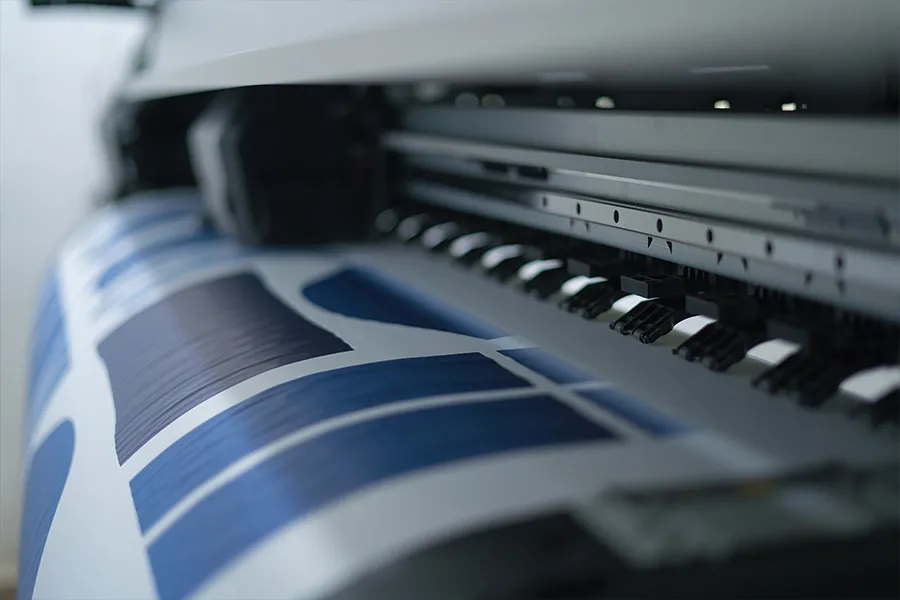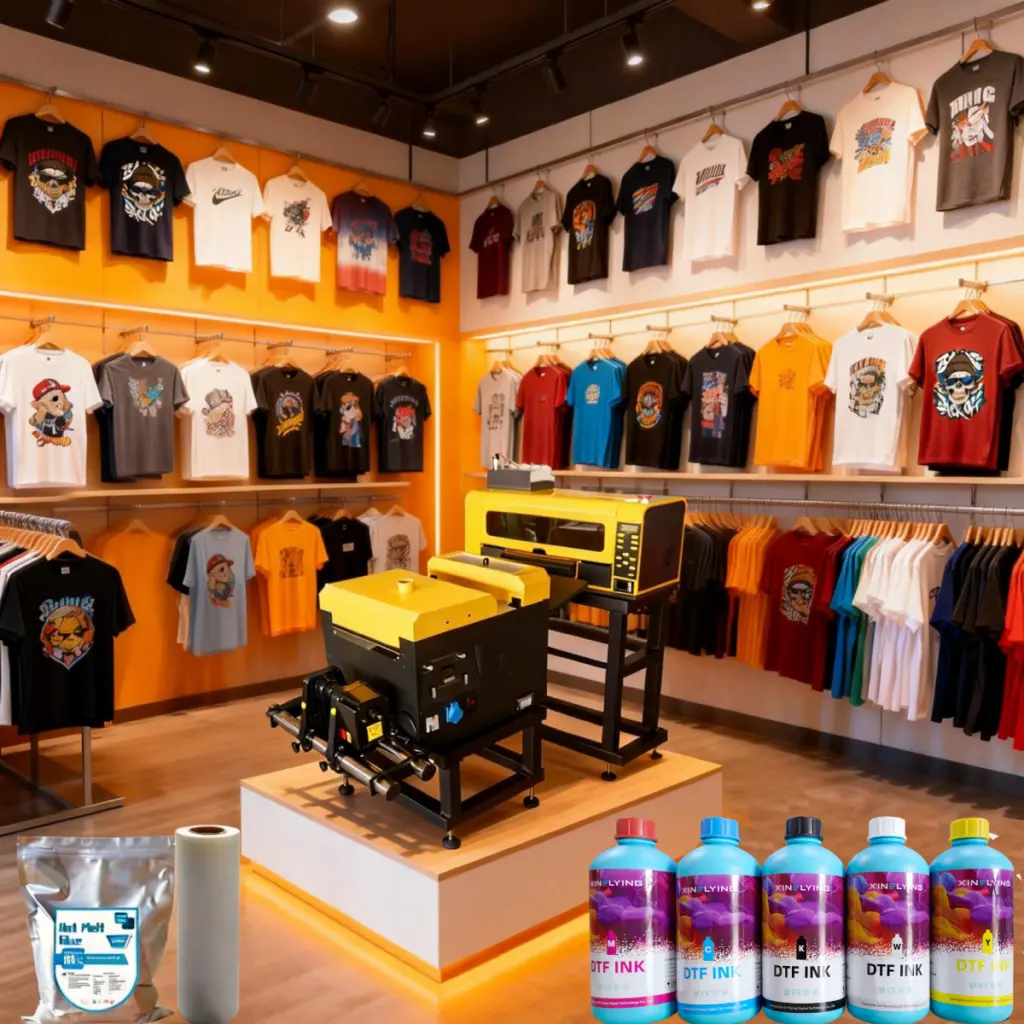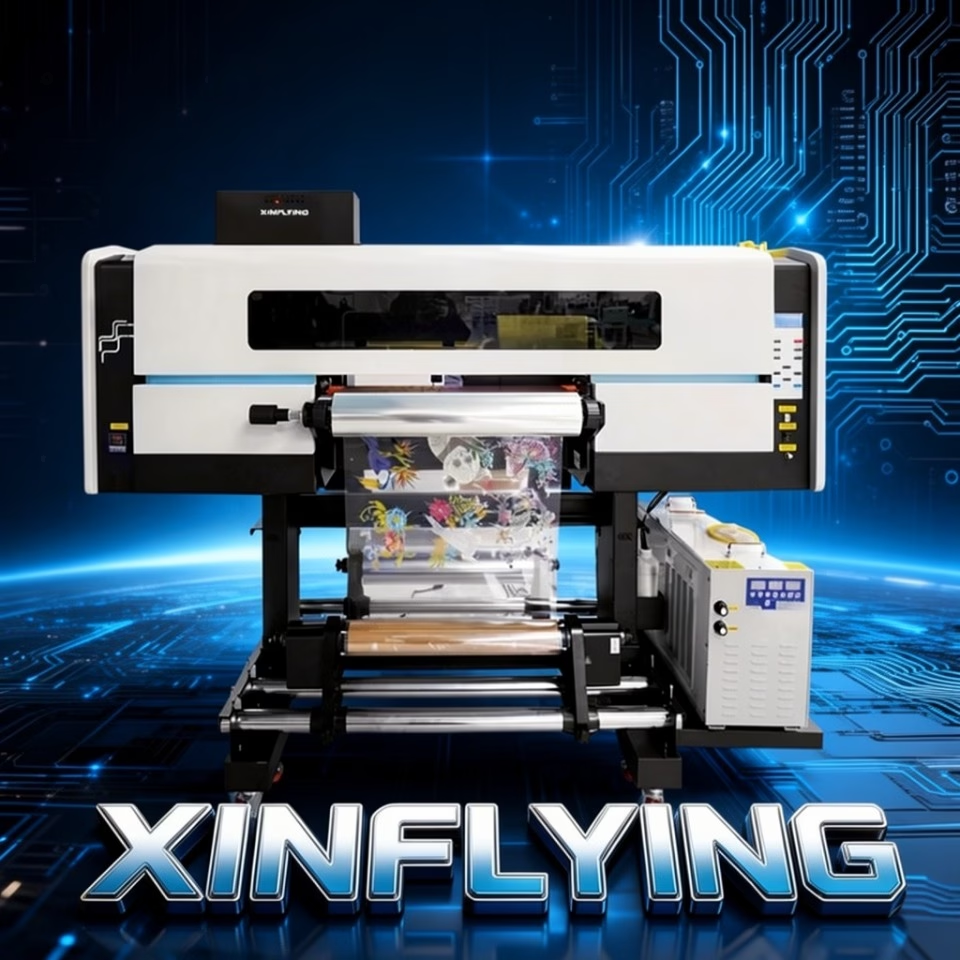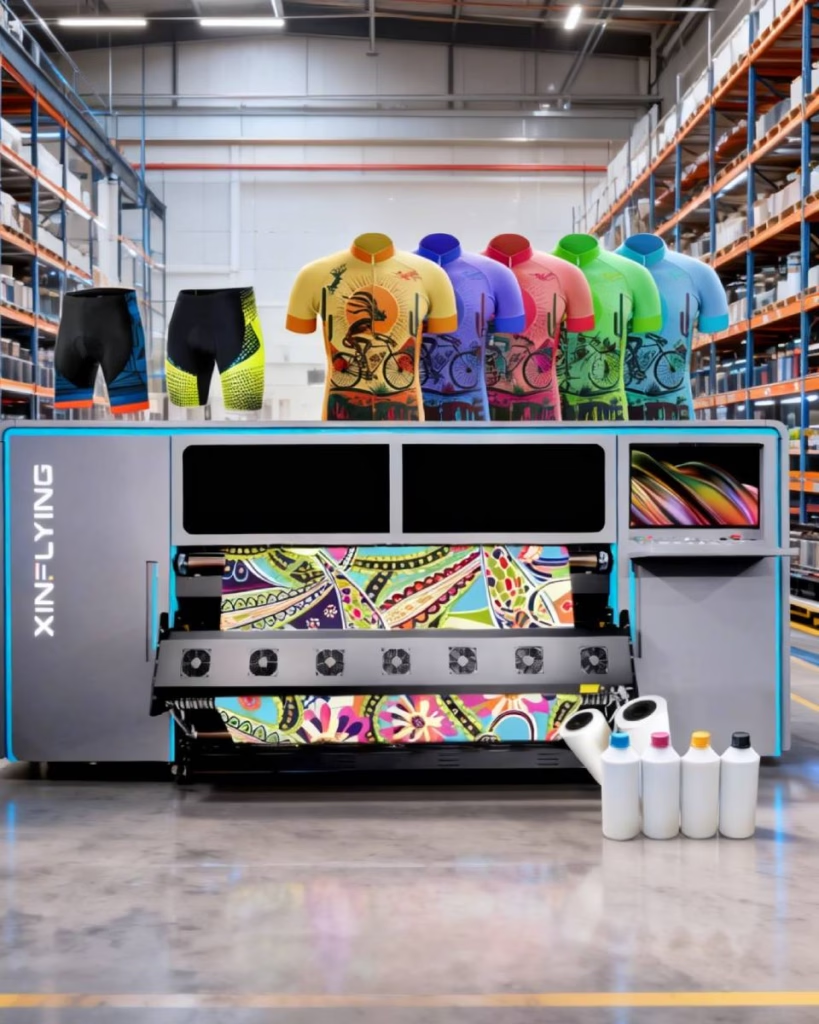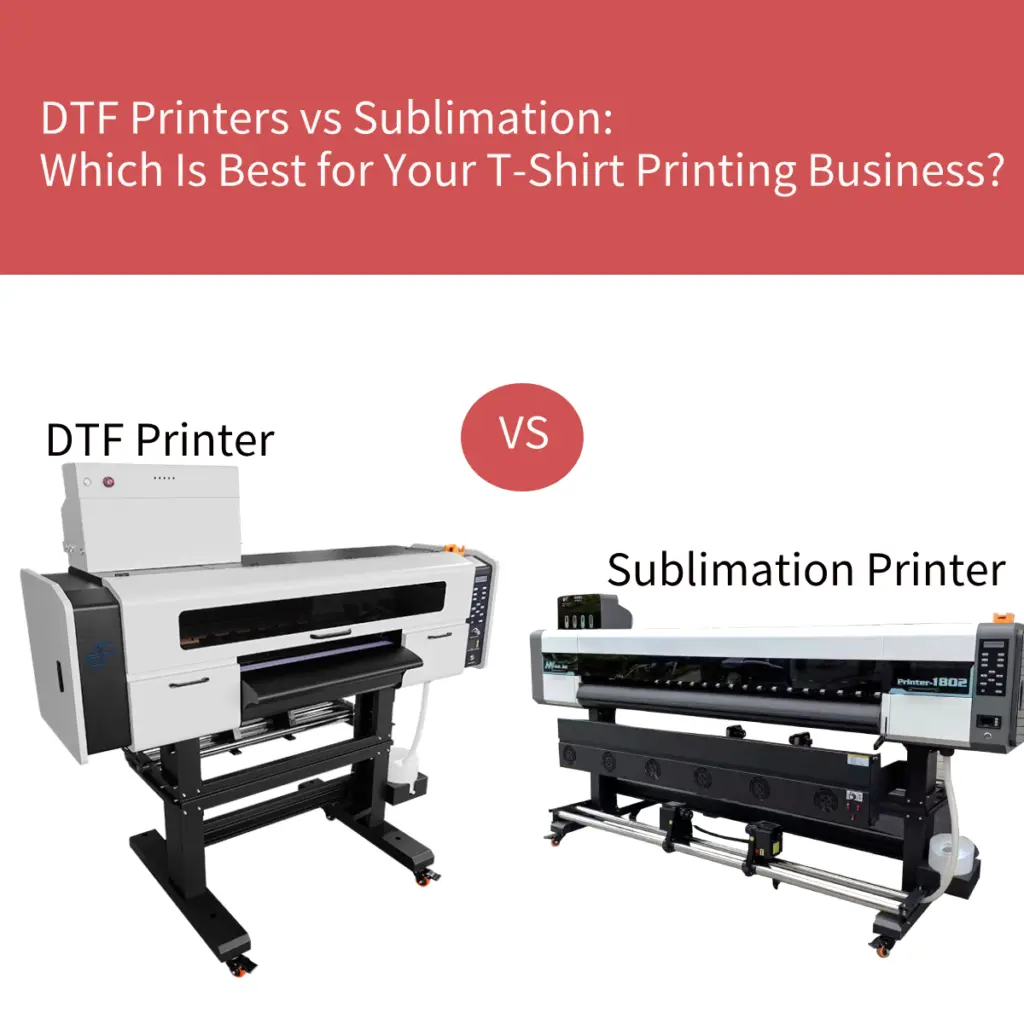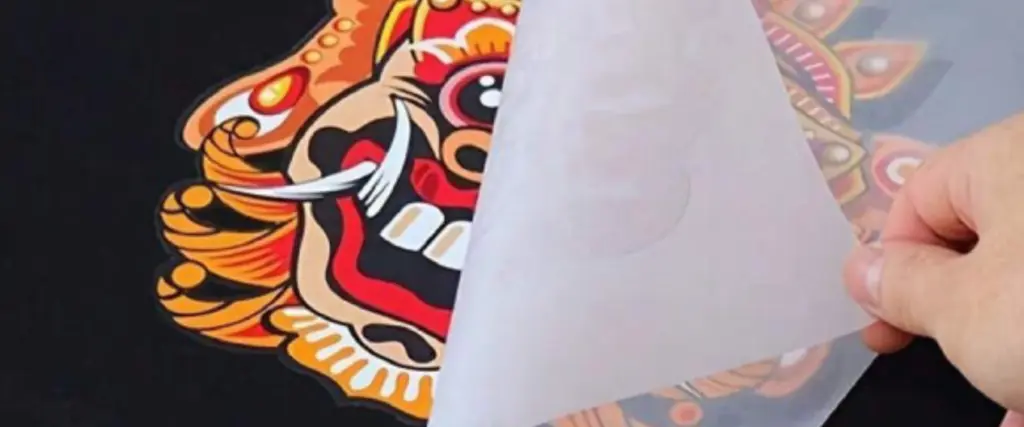Sublimacinis popierius yra puiki medžiaga, turinti galią paversti įprastus daiktus meno kūriniais, Sublimacijos spausdinimo magijos išlaisvinimas. Šiame straipsnyje, Mes gilinsimės į sublimacijos popieriaus pasaulį, tyrinėti jo apibrėžimą, Privalumai, programas, Naudojimo būdai, Trikčių šalinimas, ir priežiūra. Taigi, Pradėkime nuo šios kūrybinės kelionės.
Kas yra sublimacijos popierius?

Sublimacinis popierius yra unikalus popieriaus tipas, specialiai sukurtas sublimacijos spausdinimui. Bet kas tiksliai yra sublimacijos spausdinimas? Sublimacinė spauda yra procesas, kai šiluma naudojama dažams perduoti ant įvairių medžiagų, tokių kaip audiniai, keramika, ir metalai. Šio proceso raktas yra sublimacijos popierius.
Kas yra sublimacinis spausdinimas?
Sublimacijos spausdinimo mokslas žavi. Tai apima unikalią tam tikrų dažų savybę, vadinamą sublimacija, kur dažai pereina tiesiai iš kietos į dujas, neišeinant per skystą būseną. Tai leidžia dažams prasiskverbti į medžiagos paviršių molekuliniu lygiu, dėl to ryškus, Ilgalaikės spalvos, atsparios išblukimui ar įtrūkimams.
Sublimacijos popieriaus kompozicija ir tipai
Sublimacinis popierius yra specialiai sukurtas, kad būtų lengviau šį dažų perdavimo procesą. Tai yra padengtas specialiu sluoksniu, kuris sugeria sublimacijos rašalą ir sulaiko jį vietoje šilumos perdavimo metu. Popieriaus sudėtis ir jo dangos savybės vaidina lemiamą vaidmenį siekiant aukštos kokybės, tikslūs atspaudai.
Yra įvairių rūšių sublimacijos popierius, kiekvienas skirtas konkrečioms programoms. Pavyzdžiui, Yra sublimacijos dokumentų, kurie geriau tinka spausdinti audinius, o kiti yra geresni keramikai ar metalams. Norint pasiekti optimalius rezultatus.
Sublimacijos popieriaus pranašumai

Gyvybingos ir ilgalaikės spalvos
Vienas didžiausių sublimacinio popieriaus naudojimo pranašumų yra ryškios ir ilgalaikės jo sukuriamos spalvos. Skirtingai nuo kitų spausdinimo būdų, Sublimacijos spausdinimas leidžia dažams įsiskverbti į medžiagą, dėl to ryškios spalvos ir atsparios išblukimo ar įtrūkimams. Tai daro sublimacijos popierių idealų aukštos kokybės kūrimui, Patvarūs atspaudai, kurie laiko laiko išbandymą.
Universalumas
Be savo aukščiausios spalvos kokybės, sublimavimo popierius siūlo universalumą. Jis gali būti naudojamas vaizdams perkelti į įvairias medžiagas, įskaitant audinius, keramika, metalai, ir dar. Tai atveria begalines kūrybinės raiškos galimybes ir leidžia pritaikyti įvairius elementus.
Aukščiausia vaizdo kokybė
Vaizdo kokybė ir apibrėžimas, pasiektas su sublimacijos popieriumi, yra neprilygstami. Dažų įskaitymo procesas užtikrina, kad net mažiausios detalės ir gradientai būtų tiksliai atkuriami, todėl susidaro aštrūs ir vizualiai ryškūs atspaudai. Šis tikslumo ir aiškumo lygis yra ypač svarbus tokioms programoms kaip fotografija ar meno kūrinių reprodukcija.
Patvarumas
Be to, sublimacijos popierius siūlo puikų patvarumą. Spaudiniai, sukurti naudojant sublimacinį popierių, Bet jie taip pat išlaiko savo ryškias spalvas net po kelių skalbinių ar išplėstinio aplinkos veiksnių veikimo. Tai daro sublimacijos popierių idealų produktams, kuriems reikalingas ilgalaikis, aukštos kokybės spaudiniai, tokių kaip drabužiai, Namų dekoravimo daiktai, arba reklaminė medžiaga.
Sublimacijos popieriaus taikymas

Sublimacinis dokumentas nustato savo vietą įvairiose pramonės šakose ir programose. Panagrinėkime, kam naudojamas sublimacijos popierius:
Mada ir drabužiai
Sublimacijos spausdinimas pakeitė mados industriją, siūlydama begalines pritaikymo galimybes. Nuo gyvybingų marškinėlių iki išsamių suknelių, Sublimacinis audinio popierius leidžia dizaineriams ryškiai paversti savo regėjimą. Gebėjimas spausdinti ant įvairių audinių, tokių kaip poliesteris ar mišiniai, Padaro sublimacijos popierių būtinu įrankiu drabužių gamintojams.
Suasmenintos dovanos ir dekoracijos
Sublimacijos popierius vis labiau populiarėjo suasmenintų dovanų ir dekoracijų pasaulyje. Nesvarbu, ar tai pritaikytas puodelis, suasmenintas raktų pakabukas, arba unikalus pagalvėlės dangtis, Sublimacinis popierius leidžia sukurti vienetinius daiktus, atspindinčius gavėjo asmenybę ir stilių.
Reklaminiai daiktai ir prekės ženklas
Verslo įmonės dažnai naudoja sublimacijos popierių, kad sukurtų reklaminius daiktus ir prekės ženklo prekes. Nuo firminių rašiklių ir kanceliarinių prekių iki reklaminių reklaminių antraščių ir vėliavų, sublimacijos popierius leidžia tiksliai atkurti logotipus, dizainas, ir rinkodaros pranešimai, prekės ženklo nuoseklumo ir matomumo užtikrinimas.
Fotografijos pramonė
Fotografijos studijos ir profesionalai dažnai kreipiasi į sublimacijos popierių, kad atspausdintų savo darbą. Gebėjimas pasiekti aukštos kokybės, Ryškūs atspaudai, turintys puikų spalvų tikslumą.
Kaip naudoti sublimacijos popierių

Dabar, kai mes suprantame sublimacijos popieriaus sąvoką ir jo pranašumus, Panagrinėkime, kaip tai efektyviai naudoti. Čia yra žingsnis po žingsnio, kaip naudoti sublimacijos popierių:
1. Tinkamo spausdintuvo pasirinkimas sublimacijos popieriaus spausdinimui
Ne visi spausdintuvai yra suderinami su sublimacinis rašalas ir popierius. Svarbu investuoti į geros kokybės sublimacijos spausdintuvą, kuris yra specialiai sukurtas sublimacijos spausdinimui. Šie spausdintuvai turi specialias funkcijas ir rašalo sistemas, leidžiančias optimaliai daugintis spalvą ir ilgaamžiškumą.
2. Sublimacijos perdavimo proceso paruošimas ir nustatymas
Prieš spausdinant, Labai svarbu paruošti savo meno kūrinius ir nustatyti savo darbo vietą. Įsitikinkite, kad jūsų vaizdas yra tinkamo formatu ir spausdinimo skiriamoji geba. Pagal gamintojo instrukcijas nustatykite šilumos preso arba sublimacijos mašiną ir sureguliuokite temperatūrą, spaudimas, ir atitinkamai laiko nustatymai.
3. Spausdinimas su sublimaciniu popieriumi
Įkelkite sublimavimo popierių į spausdintuvą ir atsispausdinkite dizainą. Svarbu įsitikinti. Sekite Audinių spausdintuvo gamintojasNurodymai, kaip pakrauti ir tvarkyti sublimacinį popierių.
4. Šilumos presavimas
Kai jūsų dizainas bus atspausdintas ant sublimacijos popieriaus, Laikas perkelti jį į norimą medžiagą. Ant medžiagos padėkite sublimacijos popierių ant veido žemyn, užtikrinant, kad jis būtų tinkamai išdėstytas. Norėdami pritaikyti šilumą ir slėgį pagal gamintojo instrukcijas, naudokite šilumos preso arba sublimacijos mašiną. Tai leis dažams sublimuoti ir prasiskverbti į medžiagą, todėl susidaro gyvybinga, Patvarus spausdinimas.
Bendrosios problemos trikčių šalinimas naudojant sublimacijos popierių
1. Rašalo kraujavimas ar dėmė
Įsitikinkite, kad naudojate teisingą rašalo ir sublimacijos popieriaus derinį. Sureguliuokite temperatūros ir slėgio parametrus ant šilumos paspaudimo arba sublimacijos mašinos. Patikrinkite popierių, ar nėra jokių trūkumų ar žalos, dėl kurių gali sukelti rašalo kraujavimą.
2. Užkirsti
Tinkamai įkelkite sublimacijos popierių į savo sublimacinis spausdintuvas, Vykdydamas sublimacijos spausdintuvo gamintojo instrukcijas. Įsitikinkite, kad popierius nėra sulenktas ar pažeistas, o jis teisingai dedamas į popieriaus dėklą. Reguliariai išvalykite spausdintuvą ir pašalinkite visas šiukšles, kurios gali sukelti popieriaus uogienes ar netinkamus poslinkius.
3. Sprendžiant problemas, susijusias su spalvų tikslumu ir perkėlimo kokybe
Naudokite teisingą spalvų profilį ir sublimacijos spausdinimo parametrus. Kalibruokite spausdintuvą ir reguliariai stebėkite, kad užtikrintumėte tikslią spalvų atkūrimą. Sureguliuokite temperatūrą, spaudimas, ir laiko nustatymai jūsų šilumos preso ar sublimacijos mašinoje, kad pasiektumėte optimalią perdavimo kokybę.
Sublimacijos popierius ir šilumos perdavimo popierius
| Savybė | Sublimacinis popierius | Šilumos perdavimo popierius |
| Spausdinimo metodas | Sublimacinis rašalas + Šildyti | Perdavimo rašalas + Šildyti |
| Rašalo suderinamumas | Sublimacijos dažai | Pigmentas/dažų dažai |
| Spausdinimo temperatūra | 380-400°F (193-204°C) | 350-375°F (177-191°C) |
| Spausdinimo procesas | Rašalas virsta dujomis ir obligacijomis su medžiaga | Rašalas sėdi ant medžiagos ir ryšių su klijais |
| Spalvos gyvybingumas | Puikus spalvos gyvybingumas | Geros spalvos gyvybingumas |
| Patvarumas | Ilgalaikiai atspaudai, atsparus išblukimui ir plauti | Laikui bėgant atspaudai gali išnykti arba įtrūkti |
| Tinkamos medžiagos | Poliesterio audiniai, keramika, metalo, ir tt. | Medvilnė, poliesteris, sumaišyti audiniai |
| Spausdinimo jausmas | Nėra pridėtos tekstūros, Spaudinys jaučiasi kaip medžiagos dalis | Gali turėti šiek tiek pakeltą ar guminę tekstūrą |
| Vidutinės išlaidos | Brangiau | Labiau prieinamas |
| „Pasidaryk pats“ suderinamumas | Reikalauja sublimacijos rašalo ir specializuotos įrangos | Galima atlikti naudojant įprastą rašalinį spausdintuvą ir šilumos paspaudimą |
Nors sublimacijos popierius ir šilumos perdavimo popierius yra naudojami vaizdams perduoti į įvairias medžiagas, Jie turi keletą skirtingų skirtumų. Tyrinėkime juos:
Naudotas rašalas
Sublimacinis popierius Naudoja sublimacijos rašalą ir šilumos perdavimo procesą, kad sukurtų atspaudus, kurie prasiskverbia į medžiagą molekuliniu lygiu, dėl to ryškus, patvarios spalvos.
Kita vertus, Šilumos perdavimo popierius Naudokite pigmento ar dažų pagrindu pagamintą rašalą ir reikalingas slėgis ir šiluma, kad rašalas būtų perkeltas į medžiagą. Tai sukuria atspaudą, kuris yra ant medžiagos paviršiaus, Užuot tapęs jo dalimi.
Argumentai ir trūkumai
Sublimacinis popierius Siūlo aukštesnę spalvų kokybę, ilgaamžiškumas, ir universalumas, palyginti su šilumos perdavimo popieriumi. Tai leidžia gyvai, Ilgalaikiai atspaudai ant įvairių medžiagų, įskaitant audinius, keramika, ir metalai. Tačiau, Sublimacijos spausdinimui reikalingas specializuotas spausdintuvas ir sublimacinis rašalas, kuris gali būti brangesnis nei įprastas rašalas.
Šilumos perdavimo popierius, kita vertus, yra labiau prieinamas ir lengviau naudoti. Tam nereikia specializuoto spausdintuvo ar rašalo, Padaryti jį prieinamą mėgėjams ir nedideliems projektams. Tačiau, Šilumos perdavimo popierius gali nepasiekti tokio paties spalvų ir patvarumo lygio kaip sublimacijos popierius.
Kas yra geriau?
Pasirinkimas tarp sublimacijos popieriaus ir šilumos perdavimo popieriaus priklauso nuo jūsų specifinių poreikių ir reikalavimų. Jei ieškote gyvybingų, Patvarūs atspaudai ant įvairių medžiagų, sublimavimo popierius yra kelias. Tačiau, Jei dirbate mažesniu mastu arba turite biudžeto apribojimus, Šilumos perdavimo popierius gali būti tinkamesnis pasirinkimas.
Sublimacijos popierinių technikos tyrinėjimas
Sublimacinis popierius atveria galimybių pasaulį, kai kalbama apie kūrybinę raišką. Panagrinėkime keletą metodų, kuriuos galima naudoti su sublimacijos popieriumi:
Sublimacinis popierius marškinėliams ir drabužiams

Sublimacinis popierius yra plačiai naudojamas spausdinimui drabužiai, Ypač marškinėliai. Dažų įskaitymo procesas leidžia rašalui įsiskverbti į audinį, todėl susidaro gyvybinga, Patvarus atspaudas, kuris neišnyks ir neišnyksta. Ši technika gali būti naudojama kuriant pasirinktinius marškinėlius, sportinė apranga, ir kiti drabužiai su sudėtingais dizainais ir ryškiomis spalvomis.
Sublimacinis popierius, skirtas kieems paviršiams ir substratams

Sublimacinis popierius taip pat gali būti naudojamas vaizdams perduoti kietus paviršius, tokios kaip mediena, akrilo, arba metalas. Naudojant šilumos presą arba sublimacijos mašiną, Dažai gali sublimuoti ir prasiskverbti į medžiagos paviršių, todėl atsiranda nuolatinis, Aukštos kokybės spausdinimas. Ši technika dažniausiai naudojama kuriant individualizuotus ženklus, plokštelės, ir namų dekoro daiktai.
Sublimacinis popierius puodeliams ir keraminiams daiktams

Sublimacijos spausdinimas yra idealus Tinkinti puodelius, keraminės plytelės, ar kiti keraminiai daiktai. Naudojant specializuotą sublimacijos dangos ir šilumos perdavimo procesą, Rašalas gali sublimuoti ir tapti keraminės medžiagos dalimi, todėl susidaro gyvybinga, Patvarus spausdinimas. Ši technika yra plačiai naudojama kuriant individualizuotas dovanas, Reklaminiai daiktai, ir namų dekoro kūriniai.
Sublimacijos popieriaus priežiūra ir priežiūra

Tinkamas sublimacijos popieriaus laikymas ir tvarkymas yra būtini norint išlaikyti jo kokybę ir našumą. Čia yra keletas patarimų, kaip sublimacijos popieriaus priežiūra ir priežiūra:
Tinkamas saugojimas
Saugokite sublimacijos popierių vėsiai, sausa vieta atokiau nuo tiesioginių saulės spindulių. Drėgmė ir šiluma gali sugadinti popierių ir paveikti spausdinimo kokybę. Laikykite popierių originalioje pakuotėje arba ant uždaryto indo.
Tvarkymas
Tvarkykite sublimacijos popierių švariu, Naudokite rankas, kad būtų išvengta aliejaus ar nešvarumų ant popieriaus. Venkite lenkimo ar suspaudimo popieriaus, nes tai gali turėti įtakos spausdinimo kokybei.
Pratęsdamas gyvenimo trukmę
Norėdami pratęsti savo sublimacijos popieriaus gyvenimo trukmę, Vykdykite gamintojo instrukcijas spausdinti, Šilumos presavimas, Ir skalbimas. Naudokite aukštos kokybės sublimacinius rašalus ir įsitikinkite, kad jūsų įranga yra tinkamai prižiūrima. Reguliariai valykite šilumos presą arba sublimacijos mašiną, kad išvengtumėte šiukšlių kaupimosi, kuri gali turėti įtakos perdavimo kokybei.
DUK ant sublimacijos popieriaus
1. Ar galite naudoti įprastą rašalą ant sublimacijos popieriaus?
Nr, Jūs negalite naudoti įprasto rašalo ant sublimacijos popieriaus. Sublimavimo popierius yra specialiai sukurtas dirbti su sublimacijos dažais.
2. Ar sublimacinis popierius yra toks pat kaip perkėlimo popierius?
Sublimacijos popierius ir perdavimo popierius nėra visiškai tas pats. Tuo tarpu abu naudojami vaizdams perkelti į skirtingus paviršius, Sublimacijos popierius yra specialiai naudojamas sublimacijos spausdinimui, kur rašalas perkeliamas šiluma ir virsta dujomis, tiesiogiai surišti su medžiaga.
3. Ar galite naudoti DTF miltelius ant sublimacijos popieriaus?
DTF milteliai yra skirti naudoti su DTF spausdinimu, kuris yra kitoks spausdinimo būdas nei sublimacija. DTF milteliai uždedami perdavimo popieriui, o šiluma naudojama milteliams ištirpinti ir prilipti ant audinio. Jis nėra skirtas naudoti su sublimacijos popieriumi.
Išvada

Sublimacijos popierius yra galingas įrankis, atveriantis begalines kūrybines galimybes. Su savo sugebėjimu gaminti gyvybingą, Patvarūs atspaudai ant įvairių medžiagų, Sublimacijos dokumentas sukėlė revoliuciją tokiose pramonės šakose kaip mada, asmenines dovanas, Prekės ženklo kūrimas, ir fotografija. Suprasdamas sublimacijos spausdinimo mokslą, Tinkamo popieriaus pasirinkimas konkrečioms programoms, ir įvaldyti įvairius metodus, Galite išlaisvinti savo kūrybiškumą ir pasinaudoti galimybių pasauliu.
Taigi, Kitą kartą imsitės spausdinimo projekto, Prisiminkite sublimacijos popieriaus magiją ir jo laikomą transformacinę galią. Nesvarbu, ar esate profesionalus menininkas, pomėgis, Arba verslo savininkas, norintis išplėsti jūsų produktų asortimentą, Sublimacinis popierius yra jūsų bilietas į stulbinantį, suasmeninti atspaudai, kurie palieka ilgalaikį įspūdį. Apimkite beribį sublimacijos popieriaus potencialą ir išlaisvinkite savo vaizduotę, naudodamiesi sublimacijos spausdinimo jėga.

